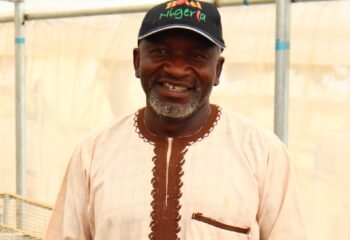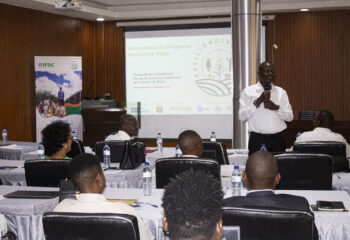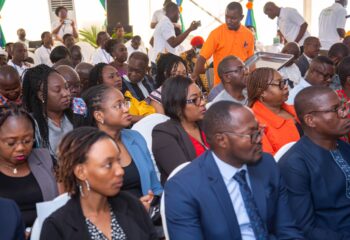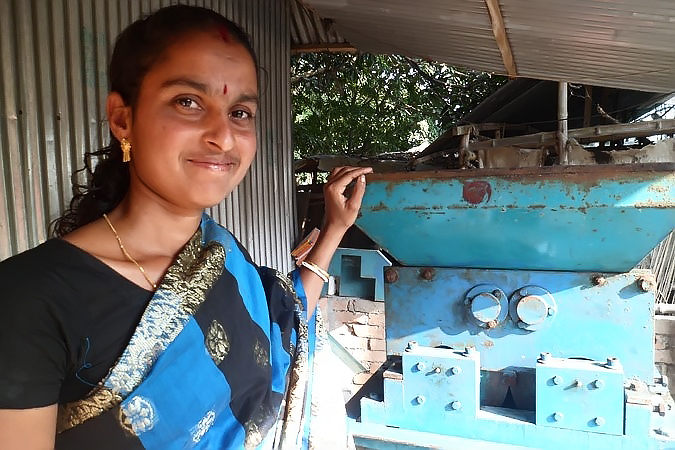
Women farmers are important members of Bangladeshi communities. Through training and business opportunities, IFDC empowers them to take charge of their production, and their success. One such farmer, Monika Mondol, is taking steps to ensure her family’s food security while finding her voice in her community. The following is her story:
My name is Monika Rani Mondol, and I grew up in a farm family in Gopinathpur village, in the district of Faridpur, Bangladesh. I went to school for five years, and I was very happy there. My teachers liked me because they believed I was intelligent. When I came home though, I had to help my mother and my five sisters with housework. I also helped my father with his crops before or after school, and soon daily work became more important than my education. Still, I was happy at home since I was useful for my family. At 14, I was married to a poor farmer of Krishnapur village in the district of Magura. Sadly, I now live two districts away from my family.
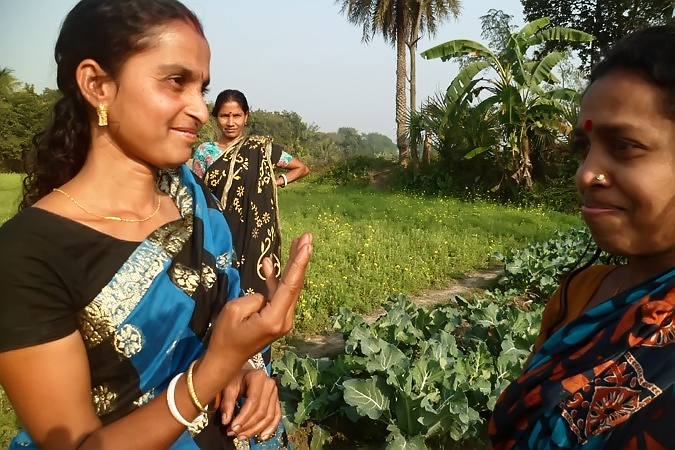
After I moved into Krishnapur, I was determined to stand by my husband – though I, being only 14, did not understand what that really meant. Nevertheless, I quickly realized that I could help him bring home a little more produce, so I began to devote my energy to farming since there wasn’t much housework in my impoverished home. My energy and drive impressed my husband, and my hard work earned his respect. But we could hardly beat poverty with the earnings from traditional farming, and this toil went on for 13 long, hard years.
The quality of our farm and income improved when we started using an improved fertilization method known as urea deep placement (UDP) for rice and vegetable production. With UDP, we insert large urea briquettes deep into the soil instead of broadcasting urea. The technique gave us the higher yields we needed to reach our potential.
It’s been two years since we were introduced to the technology, and now those tough times are a distant memory. Our outlook has gotten better, and our earnings have risen considerably. My husband was able to lease out a small piece of family land, and he used our income to buy a urea briquetting machine to start a family business. We both received training on the briquetting machine operation and work as a team. I produce the briquettes, while he takes care of the marketing side of the business.
We serve the local smallholder farm families year-round, as local farmers grow both Summer and Winter vegetables and seasonal rice. As they come by our store, I share my knowledge of and experience with UDP to help them see to the economic and climate-smart benefits of applying it on their farms. I also visit women farmers who work on family farms and talk to them about how UDP technology changed my family’s life.
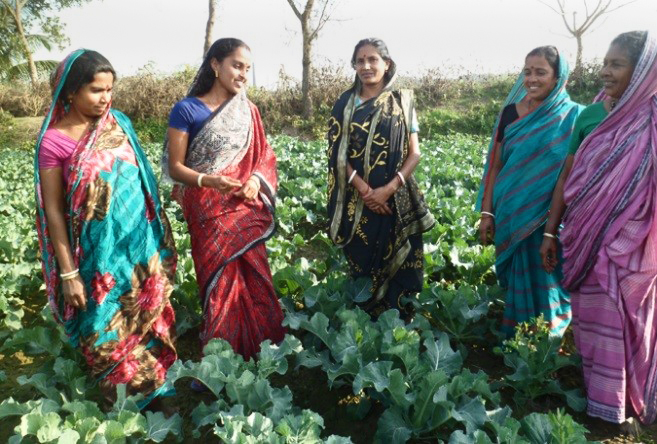
As a result of innovating our farming practices, we now eat more nutritious food and live more comfortably than we did only two years ago. I’m content with the money I earn. Through training, I’ve become an empowered entrepreneur. My family and my community value my opinion more. With education and the opportunity to earn a living, women can make substantial contributions to their communities.
Through the USAID-funded Accelerating Agriculture Productivity Improvement (AAPI) project and promotion of UDP technology, IFDC has empowered farmers like Monika across Bangladesh with improved livelihoods and encouraged gender parity through community leadership.

